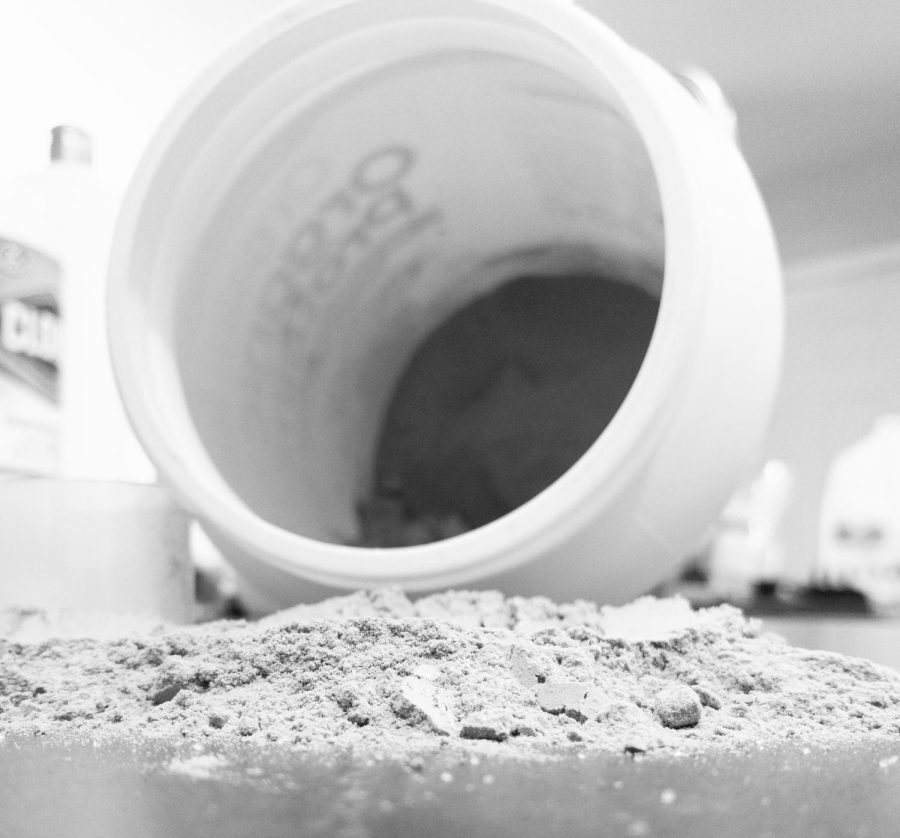SPORTS: Workout supplements take SCHS’s fitness community by storm
Although popular, workout supplements such as protein powder has led to controversy among students.
In the process of strength building, some SCHS students turn toward various pills, powders and supplements in order to fulfill their nutritional needs. While some have found that workout vitamins have helped them, the effects and benefits of supplements have been heavily debated.
Sophomore Ariel Warshawsky began attending the gym nearly two years ago. Since then, he has experimented with various pre-workouts, protein powders and other fitness supplements.
“It (supplements) definitely makes working out easier and it makes it more enjoyable, but you can get the same benefits from just being very hydrated, and there’s something called carbing up, where you have a lot of carbs before your workout. That also helps a lot,” Warshawsky said. “If you just have that, it’s a lot more effective than not having that and then taking supplements.”
Among one of the more commonly used workout supplements are protein powders and shakes. According to the New York Times, there is no evidence that protein supplements are more effective than a natural food-derived protein. Senior Erin Mizota has observed that protein powder can be utilized for its excess calories to build more muscle mass.
“If you don’t get the normal protein intake to build your muscles, it will definitely help,” Mizota said. “Protein helps your muscles repair itself.”
Alongside protein powder, creatine has been shown to improve muscle mass when combined with exercise. Creatine is naturally-produced in the livers and kidneys. It fuels the skeletal muscles allowing for increased water retention. According to the New York Times, the commonly used form of creatine in supplements, creatine-monohydrate, allows for short-bursts of activity. Its effects, however, are minute.
Sophomore Evan Carter finds that supplements are not very effective.
“Creatine and protein powder… you could use for pre-workout for feeling strong, but in reality, I don’t think it really does that much,” Carter said.
While the effects of creatine-monohydrate have been thoroughly researched in adults, according to Stanford Medicine, creatine use in minors has not been studied in-depth. This considered, the short-term usage of creatine is generally deemed to be safe.
“Taking creatine would be something where you have to be able to monitor your body and your health,” Mizota said. “As a younger person, we are not developed. It can push your body in certain ways it’s not used to.”
Many teenagers also consume pre-workout, which aims to increase focus and improve endurance during workouts. According to Healthline, there is little consistency within the ingredients used for pre-workouts, and many have not been tested for quality or approved by third-party sources.
A good pre-workout supplement may contain nitric oxide precursors like L-arginine, L-citrulline and dietary nitrates, such as beetroot juice, which relax blood cells and improve blood flow. Other beneficial ingredients include creatine, caffeine and Beta-alanine, which prevents acid-buildup in muscle tissue.
Alongside looking for beneficial and quality ingredients, prior to taking new supplements, many consider the effects that certain workout supplements will have on their body. Mizota avoids consuming creatine in consideration of her health.
“I think that I would also be strongly considering the side effects of the supplements. For example, creatine. I would not take creatine because I already struggle with dehydration,” Mizota said. “So I have to consider for myself what I’d want.”
Focusing on the basics is also a determinative factor in some athletic performances and the achievements.
“Diet, exercise, sleep,” Warshawsky said. “And how hard you train.”


